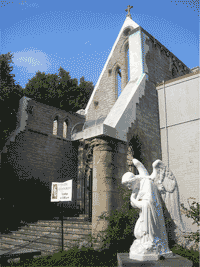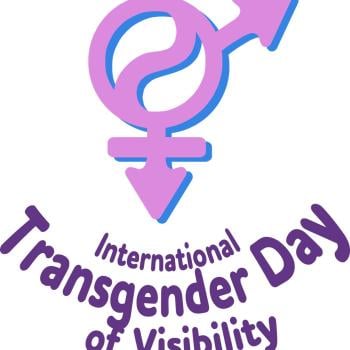By the Rev. James Ward
 |
| Photo courtesy of NCinDC via Flikr Creative Commons License |
As the 76th General Convention of the Episcopal Church convenes in Anaheim this week, it's the rare member of my suburban northern California parish who will give much attention to the news it produces. The outcomes of this triennial ritual blood-letting will not affect much that goes on in Sunday worship. The Episcopal Church, once famously known as the "Republican Party at prayer," now seems more like the Democratic Party trying to hammer out a platform -- cognizant of the shrinking number of Republicans looking on with voice but few votes, yet nevertheless claiming to represent the concerns of a global not-so-silent majority, the Anglican Communion.
This year's theme is Ubuntu: I in you and you in me. This theme will be enacted by a process of "public narrative," described as seeking to "link the truth of who we are with our individual calls to mission with the truth of who we are as a community, also called to mission." It seems intended to advance what the Lambeth Conference (the decennial gathering of Anglican Bishops from all over the world hosted by the Archbishop of Canterbury) has called for in every meeting since 1978 as a "Listening Process." The use of an African word, "Ubuntu," may suggest that the "truth" voiced will be that of the increasing proportion of openly gay and lesbian Episcopalians and that the intended audience is their fellow Anglicans in Africa.
Especially with the increasing number of states that allow same-sex marriage, the issue of "sex" will yet again unavoidably occupy the business of the Convention. For many the lament, "Can't we talk about something else, like mission or evangelism?" is already regarded as a reactionary rant. Our mission, in an age of steeper and steeper membership decline, has already been defined as, in the words of the Presiding Bishop, "full access to the life of this church." With greater pressure to include same-sex marriage, there will be more scrutiny from worldwide onlookers.
The Church of England from at least the time of the Elizabethan compromise has been shaped by the traditions of common law. Unlike Roman Catholicism where an infallible magisterium insists on conformity to a celestial ideal rather than adapt to common practice, or Evangelicalism where the word of scripture must conform the heart of the faithful, in the Episcopal Church both faith and practice have always been in conversation with the lived experience of the people. After considerable struggle, the Episcopal Church has made pastoral allowances for remarriage after divorce, ordains women and gay and lesbian members, and will no doubt accept same-sex marriage. In doing so, it liturgically names the "blessing" it sees and authorizes the vocations to ministry and a holy life together that it has recognized.
Rather than regard it as compromise or conformity to the spirit of a godless age, at our best we evince a reticence to claim or to say too much about God's will and recognize the work of the Holy Spirit as always surprising if not downright disturbing and as rarely confined to the understanding or current knowledge of the church or its leaders. The incarnation makes clear that the entire creation is the instrument of God's transformational purpose and that Christ has promised to be known in the outcast and the rejected.
It is in this spirit that the Episcopal Church responded to the Primates (archbishops of the thirty-eight geographical provinces of the Anglican communion) who called for a theological justification for our action six years ago when both houses of Convention confirmed the election in the Diocese of New Hampshire of V. Gene Robinson, a partnered gay man, as their Bishop. We suggested that the transformation we are being called upon to undergo is comparable to that occasioned by the "Gentile Pentecost" (Acts 10) and considered at the Council of Jerusalem, where the law with its requirement of circumcision was set aside for Gentile believers. No less of a social revolution may now be upon us. As if appealing to the wisdom of Gamaliel, the decades-long arc of conversation among us seems to be urging that before condemning we wait and see if in fact "God is in this."
Over thirty-five years of ordained ministry I have struggled through my own "listening process" and been transformed in my thinking. From a youthful position of biblical certitude I watched my parents' anguish at learning that my younger sister had in mid-life claimed her own lesbian identity. Because my charismatic experience was well enough known, I was invited to listen in spiritual direction as a young man with AIDS revealed his own pain at being a "Spirit-filled" gay man. "I never know which closet to come out of," he told me. "When I'm with my Christian friends I'm a closeted gay. When I'm with my gay friends, I'm a closeted charismatic Christian."




